Take Action for Donkeys
Donkeys are patient, kind, intelligent animals. They can recognize the faces of animals they haven’t seen for years, and they feel pain and fear just as any other animal does. But right now, donkeys exploited by humans are suffering when used for labor, entertainment, and even traditional medicine.
From this page, you’ll be able to complete multiple PETA action alerts to help donkeys.
Keep reading to learn more, or click the button below to get started:
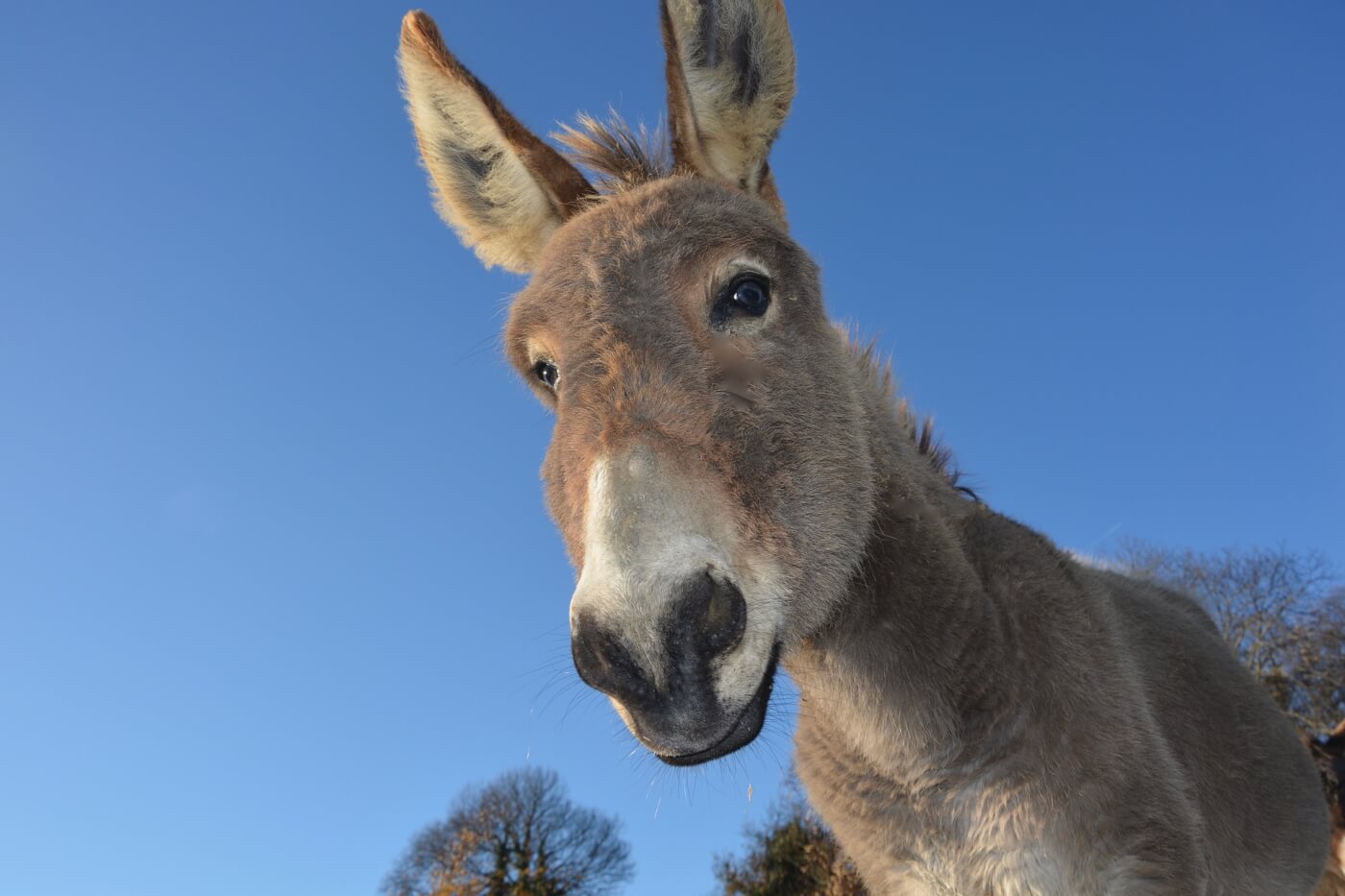
Ejiao
Shocking eyewitness footage from Chinese farms shows donkeys—some as young as 5 months old—being hit on the head with a sledgehammer. Their throats are then slit, and they are left to die. Some of them continue to breathe and move after having been bludgeoned. These gentle animals are killed for one reason: so that their skins can be sold to leading pharmaceutical companies in China, where they are boiled down to make gelatin for ejiao, a traditional Chinese medicine that’s believed to improve blood circulation. Watch this video to learn more:
On every farm visited by PETA Asia’s observer, donkeys were stuck in small, filthy concrete-floored pens. Located outdoors, they were only partially protected from the elements by a tin roof, and many were seen standing in their own waste and urine. The only water available to them was filthy and green with algae.
Companies such as eBay, Walmart’s Jet.com, and many others have already agreed to remove all products containing ejiao. Below, you can urge other companies to stop selling this cruelly obtained product.
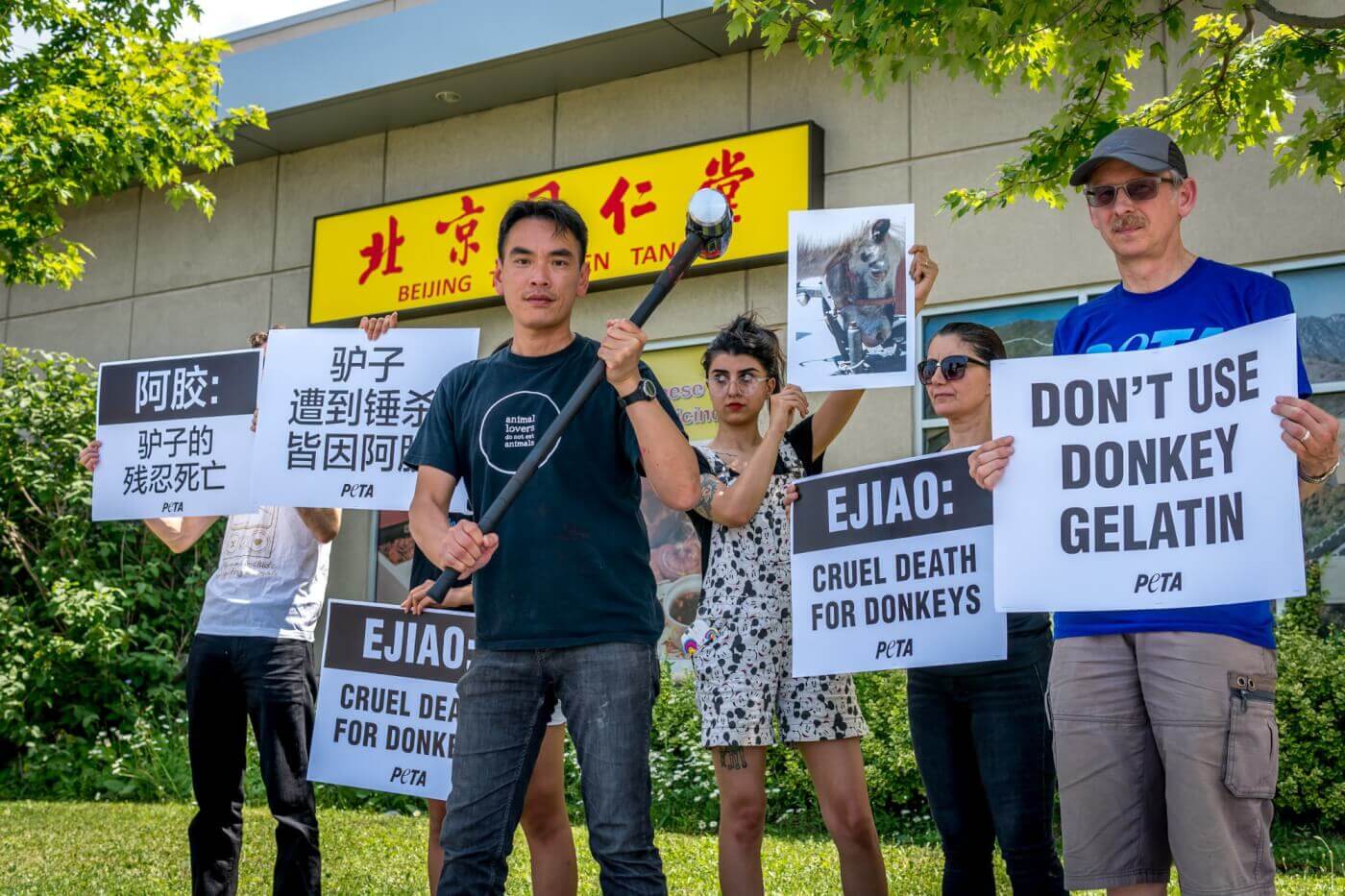
'Working Animals'
On the Greek island of Santorini, donkeys and mules are forced to carry heavy loads, given practically no respite from the hot Mediterranean sun, and even denied access to water. They’re forced to bear the weight of riders they can’t safely or comfortably carry, and many animals incur deep wounds and abrasions from ill-fitting saddles. Because they’re continually irritated by the equipment, the wounds can’t heal properly, which can lead to long-term pain. Rather than being treated for their injuries, the animals are simply forced to continue working by owners who clearly prioritize profit over well-being.
In the ancient city of Petra, another popular tourist destination, an eyewitness observed that handlers routinely whip and beat “working animals” as they haul tourists on a grueling trek in the sweltering heat. Donkeys were forced to carry humans up and down the 900 treacherously steep and eroded steps to the city’s iconic monastery. If they resisted or faltered, the beatings intensified. Handlers repeatedly hit the weary animals with anything at hand—including hard plastic pipes, ropes, chains, and whips—to keep them moving.
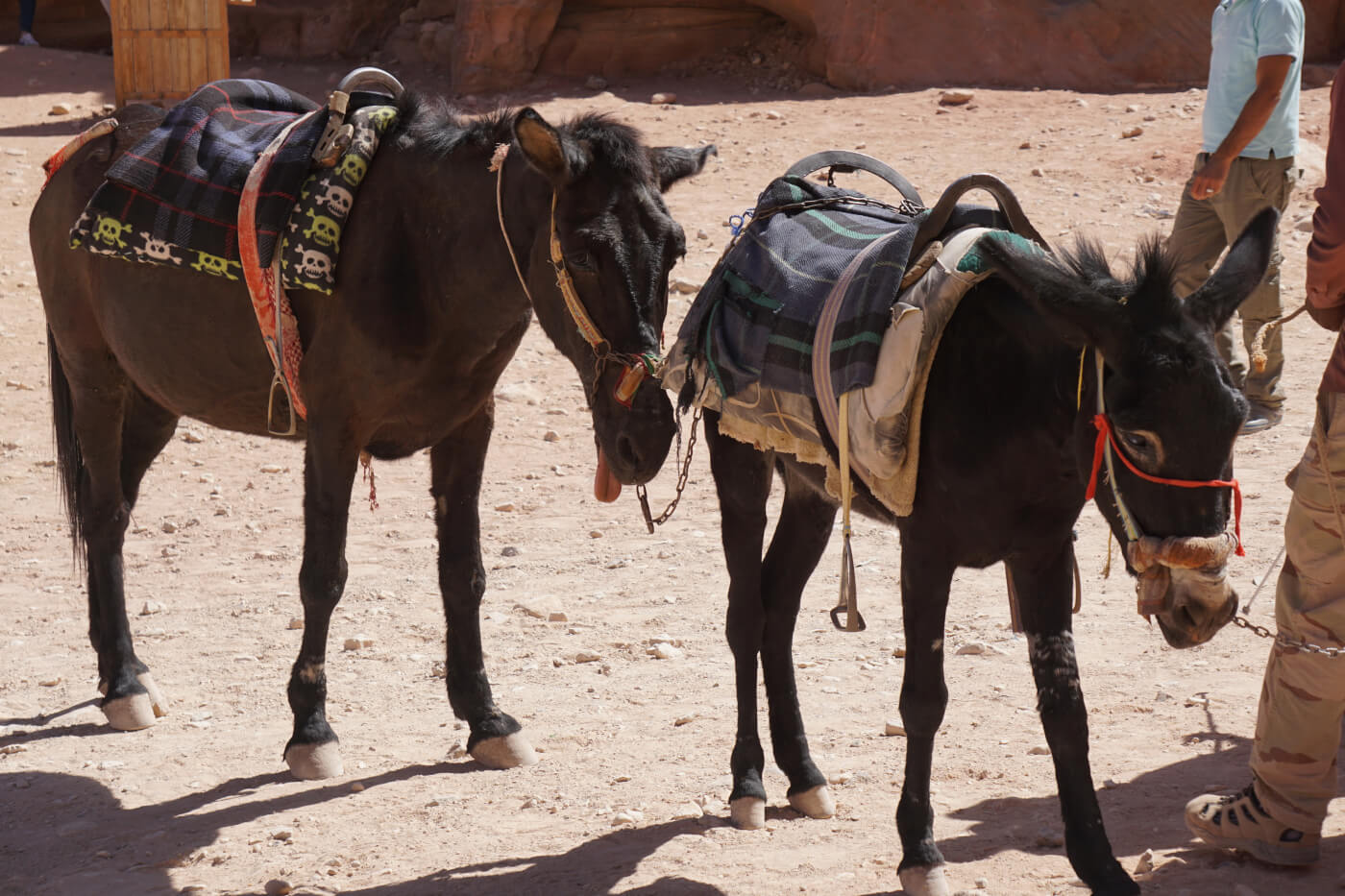
According to veterinary recommendations, donkeys shouldn’t carry more than 20% of their bodyweight—approximately 110 pounds. But profit-driven owners who exploit donkeys as “working animals” often allow heavier riders, placing a great strain on the animals’ backs and joints. This has grave consequences for the donkeys. If they become too weak to carry on with their “work,” they’re often abandoned and left to die.
Ready to Take Action?
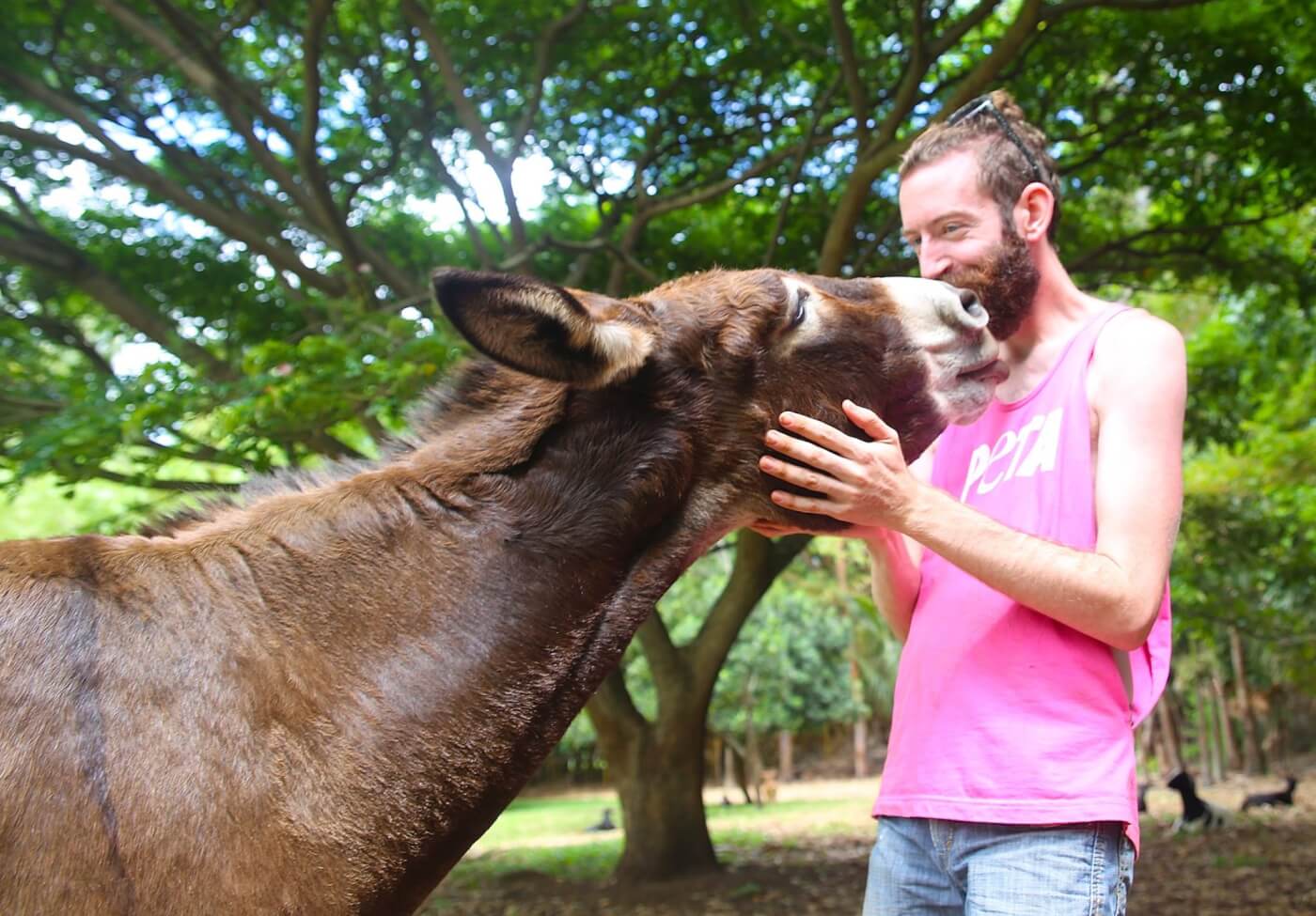
Donkey Basketball
Donkeys forced to “play basketball” in fundraisers are kicked and screamed at by inexperienced and unruly riders. Even though an average-size donkey is not able to bear much more than 100 pounds, in most donkey basketball games, participants are teenagers or full-grown adults.
Donkeys used in these events are usually supplied by a handful of companies that rent out animals like carnival equipment, loading and unloading them in and out of trailers and hauling them around the country from one event to the next. The lights, noise, and commotion of these events are extremely stressful for the animals. Those who are forced into loud, confusing environments can become frightened and may lash out to protect themselves.
Donkey basketball fundraisers desensitize young people to animal suffering and send kids the message that it’s OK to abuse and humiliate those who are weaker than they are. Children who are exposed to animal abuse are taught the dangerous lesson that cruelty is acceptable and that we have the right to exploit animals for our own entertainment—which can manifest in further animal abuse. Most kids have natural compassion for animals, but during games like these, students are often more concerned with winning and showing off for their friends than with the animals’ well-being. Schools should be working to nurture compassion, empathy, and kindness in their students—not callousness and cruelty.
If you’re a student at a school that’s hosting donkey basketball, take charge. Students and parents should contact their school district superintendent and ask for a policy banning the use of live animals in fundraisers. You could also start a petition! If your appeal is ignored, contact PETA so that we can help you plan a demonstration. Donkeys have no place in basketball games, petting zoos, or any other exploitative events in which they’re forced to entertain humans.
If you want to be an all-star for animals, there are tons of ways to get more involved. Follow PETA on Facebook, Twitter, and Instagram to stay up to date on our latest campaigns. Subscribe to PETA News to get weekly updates on our efforts. And be sure to complete the PETA action alerts below—with the click of a button, they’ll allow you to speak up for donkeys.
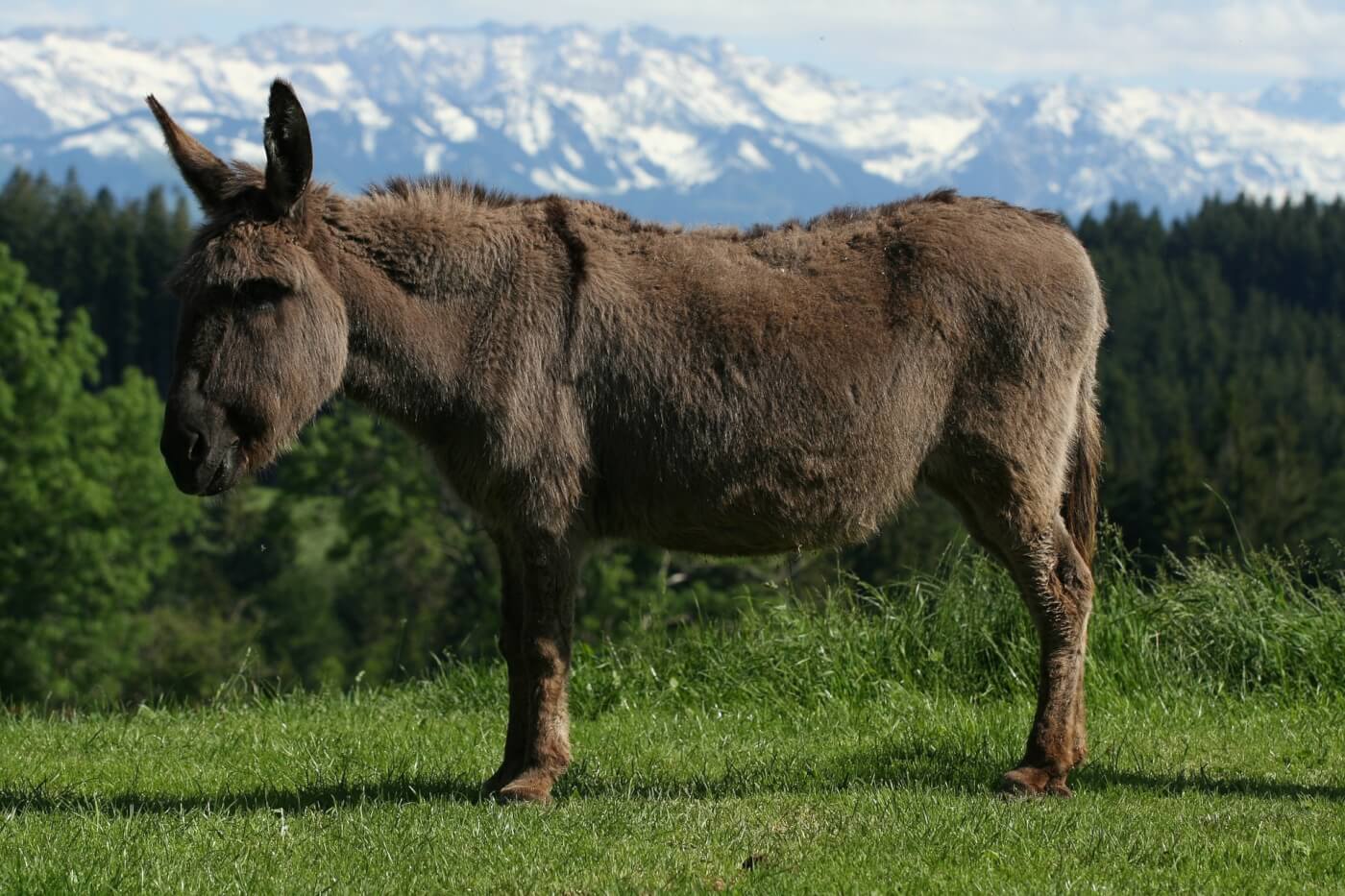
—Get Started Now—
There are multiple opportunities to help. As soon as you take one action below, another will automatically appear in its place.
Just enter your information once, and then keep clicking the “Send Message” button until you’ve completed them all. Once you’ve finished, be sure to share this page with your friends, family members, and social media followers. Encourage them to join you in helping stop the exploitation and abuse of donkeys.